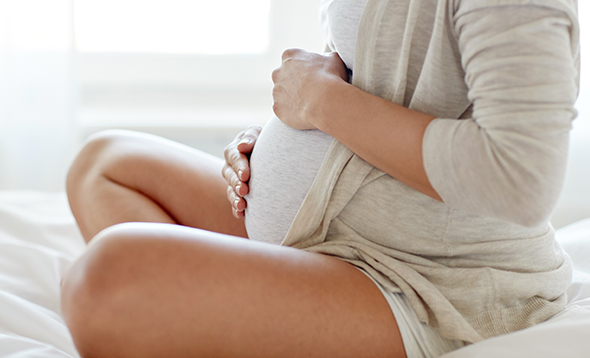That organic living is a conscious health choice
How Can I Prevent or Overcome Morning Sickness?
A new pregnancy often brings a mix of feelings ranging from excitement to nervousness to joy and contentment. However, for many women – almost 80 per cent, in fact – it also brings about undulating waves of nausea.
While medical experts have yet to pinpoint the exact cause of morning sickness, it’s likely due to changes in hormonal levels following conception. Just as ambiguous as the cause are the symptoms and the solution. Every woman – and every pregnancy – is different. Some merely experience a slight loss of appetite in the early stages, while others have severe aversions to anything edible and suffer from chronic vomiting.
How do you weather the nausea storm, and ensure that you and the little one get the necessary nourishment? Here are some tricks to help you and your growing baby bump get over the first-trimester hump:
Wake up slowly
While symptoms can – and sometimes do – last the entire day, they tend to be most pronounced and common in the morning. So keep your movements modest and your pace slow in the early hours. Schedule appointments later so that your body has sufficient time to gradually adjust to your day’s activities.
Avoid emptiness
An empty stomach can exacerbate and even precipitate nausea. Have a small and simple meal once you wake up and avoid long durations between meals.
Stay away from trigger smells
Some studies conclude that expectant women do not possess a heightened olfactory sense. However, many pregnant women insist their noses are especially perceptive and picky. While there is no clear-cut list, certain trigger smells – such as a waft of cigarette smoke, body odour, perfume, or even food – can cause an instantaneous gag. Take note of what triggers the reaction and avoid them in future.
Hydrate
Dehydration is a dangerous consequence of severe morning sickness, but insufficient fluids can also bring it on – or exacerbate symptoms. Rather than chug, simply sip on clear, caffeine-free liquids such as lemon-infused water, sparkling water or fresh herbal teas throughout the day. Coconut water or a sports beverage also offers valuable electrolytes, which need to be promptly replenished following a bout of vomiting.
Minimise meals that are:
- High in fat - Greasy and oily foods are acid-forming, and are harder to digest.
- Spicy – These can irritate or aggravate the upper gastrointestinal tract.
- Overly complex – Tapas and samplers are fun for the palate but can confuse and complicate digestion.
Include foods that are:
- Cold – Foods such as popsicles, smoothies and fresh salads are less likely to trigger a gag reflex as they’re relatively odourless and can often sooth a feisty gut.
- Bland – Simple and less flavourful food can calm unpredictable senses and gut discomfort. Keep natural carbohydrates –such as starches and whole grains -handy. Good options include fibre-rich crackers and breads, puffed rice cakes, porridge or baked root vegetables.
- Light proteins – Amino acids are essential for your body and the baby’s development, but make sure they’re from complete and clean sources. Reach for quinoa, edamame, flaxseed meal, organic yogurts, skinless chicken or turkey breast. While fish and eggs are also nutritionally valuable, their aromas can be off-putting for some.
- Electrolytes – Expectant women who constantly vomit may require extra electrolytes such as sodium or potassium. If your blood pressure is within the normal range, add a pinch of salt to your meals or a salted cracker to prevent low sodium levels. Incorporate potassium-rich foods including bananas, avocados and sweet potatoes in your diet.
- Ginger – An Ayurvedic favourite for digestive problems, this fresh root can relieve nausea and calm the stomach. Pregnant women who regularly take ginger in the form of fresh tea, ale, chews, biscuits or even supplements, often report having reduced symptoms of morning sickness.
Ask for help
If your appetite is poor and your meals are sporadic, consider consulting a dietitian. He or she can assess whether your intake is adequate, help you troubleshoot and suggest supplements, if necessary. If symptoms dip into the dangerous realm where foods and liquids won’t stay down, severe weight loss and dizzy spells occur, and daily activities screech to a halt, contact your healthcare provider immediately. You may be among the one or two per cent whose wooziness has moved into hyperemesis gravidarum – a clinically severe illness that requires medical attention.


























_1672804154.jpg)

_1611290459.jpg)